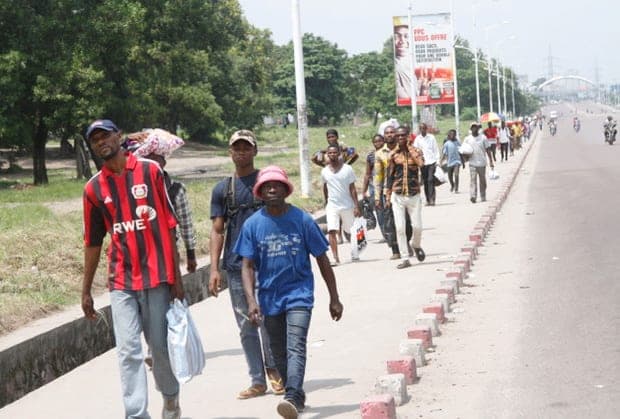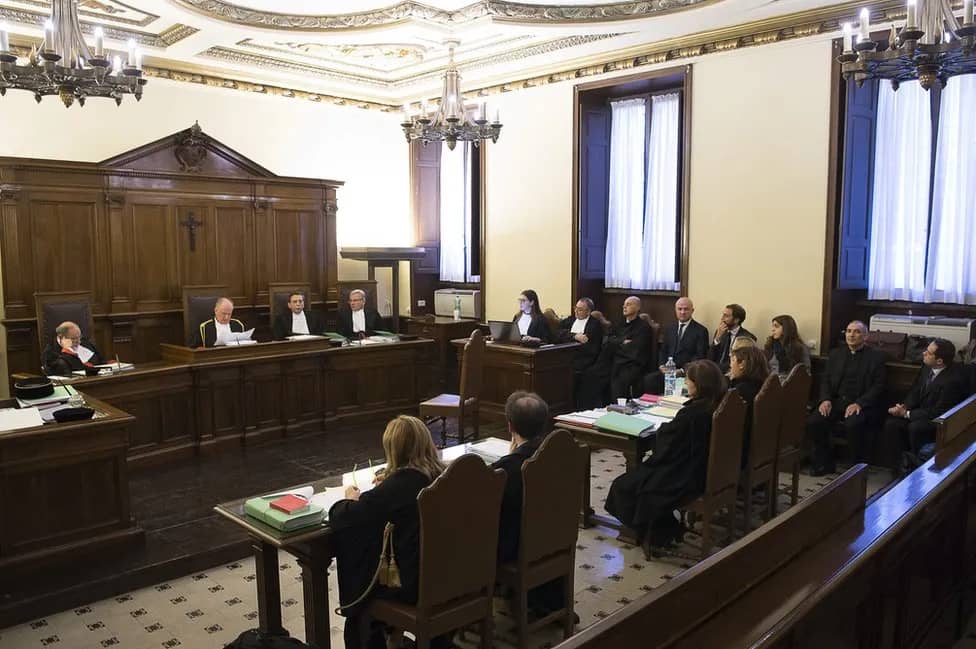ROME – A scheduled Vatican mission to the Democratic Republic of the Congo recently had to be postponed, a senior Vatican cardinal said Thursday, in part because of mounting tensions between the local Church in one of the world’s most pervasively Catholic countries and the government of incumbent President Joseph Kabila.
“Our discastery made one visit there, and we planned a follow-up, but it had to be postponed because of the fighting and because of tensions between the government and the Church,” said Cardinal Peter Turkson of Ghana, Prefect of the Vatican’s Dicastery for Promoting Human Integral Development, at a Rome conference on Thursday.
The same conference heard the U.S. Ambassador to the Holy See, Callista Gingrich, say the United States was “shocked” by a violent crackdown on church-organized anti-Kabila protests in December, saying, “I assure you, you have the full support of the United States.”
Although Turkson did not expand on what he meant by tensions, the most recent cycle of Church/State conflict began in late November, when the country’s Catholic bishops publicly appealed to Kabila, who’s been in power since 2001, not to seek another term as the country’s president.
Congo’s constitution bars the president from serving more than two terms in office, and Kabila’s second term was up in 2016. Since that time, elections to name a successor have been repeatedly delayed, amid rumors that Kabila and his allies were seeking ways to extend his grip on power almost indefinitely.
In a recent issue of Foreign Affairs, Stuart A. Reid suggested that in addition to the maintenance of power for its own sake, Kabila may also fear attacks to confiscate the personal fortune he and his extended family have amassed, estimated in the hundreds of millions of dollars, including stakes in the country’s largest cell phone company and its largest bank. Kabila may also fear arrest and imprisonment, either on corruption charges or human rights abuses.
Whatever the causes, many Congolese observers are skeptical that Kabila will allow elections to be processed, which are now set for Dec. 23, 2018.
In that context, the country’s bishops held a three-day meeting in Kinshasa, the country’s capital, and issued a statement reminding Kabila that he is the “guarantor of the constitution” and asking him not to seek a third term. The bishops also urged the country’s electoral commission to reassure the public of its independence and to operate with transparency, saying it’s important that elections not be further delayed.
On Dec. 31, an archdiocesan lay coordination committee organized a protest in Kinshasa, demanding that Kabila step down and allow free elections. Security forces carried out a series of mass arrests, including at least six priests and a seminarian who were detained.
Violence then broke out, leaving at least six people dead and more than 120 people injured, with most of those fatalities and injuries sustained at the hands of security forces. Those actions were condemned both by the bishops of Congo and also the Vatican embassy in Kinshasa.
The church/state tensions of the moment were also immediately evident at Thursday’s Rome session, where the first statement during a time for audience participation came from a young Congolese student insisting that Kabila is not “good for the people” and backing the church’s stance.
With a population of around 80 million, the Democratic Republic of Congo is one of the largest nations in Africa; and with around 50 percent of that total being Catholic, it’s also one of the largest Catholic nations in the world. The Catholic Church has long played an outsized role in Congolese affairs, being described by one expert as the lone “truly national institution” in the country.
For the last two decades, Congo, especially the country’s mineral-rich eastern sector, has been the setting for on-again, off-again violence, fueled by a bewildering variety of governments and armed groups, not to mention simple criminal gangs, believed to have left somewhere between two and five million people dead.
For her part, Gingrich told the Rome meeting that it’s the policy of the U.S. government that Kabila must “control his security forces” and “step down.” She also pledged U.S. support for the U.N. Stabilization Force in Congo, noting that the United States is the largest bilateral donor of humanitarian aid to the country.
The meeting, titled “Building Peace Together,” was held at Rome’s Urban University, sponsored by the Congregation for the Evangelization of Peoples and designed to serve students from mission countries.

















